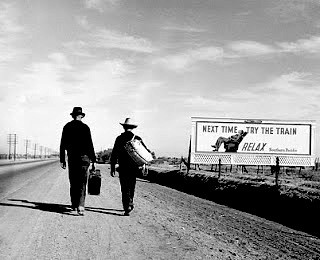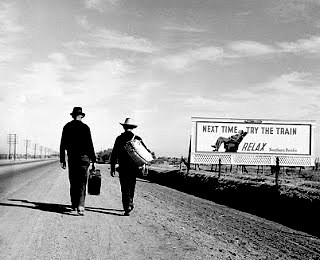“At what other moment in history would it have been plausible for a serial killer to identify…
“At what other moment in history would it have been plausible for a serial killer to identify middle-aged white men as his most vulnerable targets?”


Hanna Rosin has an engrossing piece up at the Atlantic about a serial killer who lured disenfranchised white men on Craigslist with a fundamental American fantasy (“Wanted: Caretaker For Farm… used mainly as a hunting preserve, is overrun with game, has a stocked 3 acre pond, but some beef cattle will be kept, nearest neighbor is a mile away, the place is secluded and beautiful, it will be a real get away for the right person, job of a lifetime”) and then killed them as a way to profit off the contents of their moving vans.
The job application emails are particularly intimate and devastating — “I’m still in good shape and not afraid of hard work! I really hope you can give me a chance” — but Rosin resists prurience and draws out the unexpected commonality between Jack Beasley and his victims, which is also the thing that led to his demise; all of them depended on close, unorthodox, unlikely relationships.
I was initially drawn to the story of the Beasley murders because I thought it would illuminate the isolation and vulnerability of so many working-class men, who have been pushed by the faltering economy from one way of life — a nine-to-five job, a wife, children — into another, far more precarious one: unemployed or underemployed, single or divorced, crashing on relatives’ spare beds or in the backseats of cars. At what other moment in history would it have been plausible for a serial killer to identify middle-aged white men as his most vulnerable targets?
But what I discovered in the course of my reporting was something quite different. As traditional family structures are falling apart for working-class men, many of them are forging new kinds of relationships: two old high-school friends who chat so many times a day that they need to buy themselves walkie-talkies; a father who texts his almost-grown sons as he goes to bed at night and as he wakes up in the morning… [F]or men who are failing the traditional tests of marriage and parenting, this kind of intense emotional connection “is the last form of identity available.” It’s a way to maintain a sense of family if you can’t be a reliable breadwinner, or even keep up with child support.